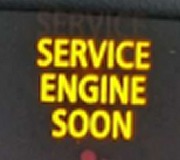P0301 - Cylinder 1 Misfire Detected
P0480 - Cooling Fan 1 Control Circuit Malfunction
U110C refers to the fuel level sending unit, but they don't give a decent description of that code. There is a diagnostic chart that we can post.
First of all, can I assume you are not adding power steering fluid to the brake fluid reservoir? If you are, stop right now as the repairs will cost much more than the van is worth. If that is not the case, we need to approach these one item at a time in multiple questions. That's for two reasons. First, each question gets categorized by topic to make it easy for others researching a problem to find. When we add a second or third problem, those will get overlooked, but they could benefit others.
The second issue is now that I posted this reply, unlike on other sites where anyone can chime in and confuse the issue, here this has become a private conversation between me and perhaps one more expert. As such, the other experts aren't going to see the next problem or have a chance to reply. That may not get you the help you need.
Lets start with the oil pressure switch. It's shown in this drawing. Why do you need to replace it?
Code P301 is for cylinder # 1 misfire. There's a chance new spark plugs will solve that one.
When you get to the brakes, consider posting a new question. I'll reply if I see it first. There's a lot more to a quality brake job than just slapping on a few new parts. There's tricks to avoid causing noises and vibrations, and there's plenty a competent do-it-yourselfer can do to cause problems.
You don't automatically have to replace the calipers unless one is sticking. If you do, be aware that if the van has anti-lock brakes, you will need a scanner to bleed the air out of two chambers if you let the master cylinder run empty while the calipers are off. There's a simple trick to prevent that. Even more importantly, whether you're bleeding air out or when you need to pump the brake pedal a few times to adjust the pistons out of the calipers, never, never, ever push the brake pedal to the floor. Doing so can instantly damage it any time it's more than about a year old, due to the crud and corrosion that build up in the lower halves of the bores where the pistons don't normally travel. To prevent damage, don't push the pedal over halfway to the floor.
The deadly enemy of brake fluid is anything petroleum-based, like power steering fluid, engine oil, transmission fluid, ale grease, and penetrating oil. As little as one drop can lead to problems down the road.
I have a lot more to share on the topic of standard brake jobs.
Image (Click to make bigger)
Tuesday, October 10th, 2023 AT 3:16 PM



